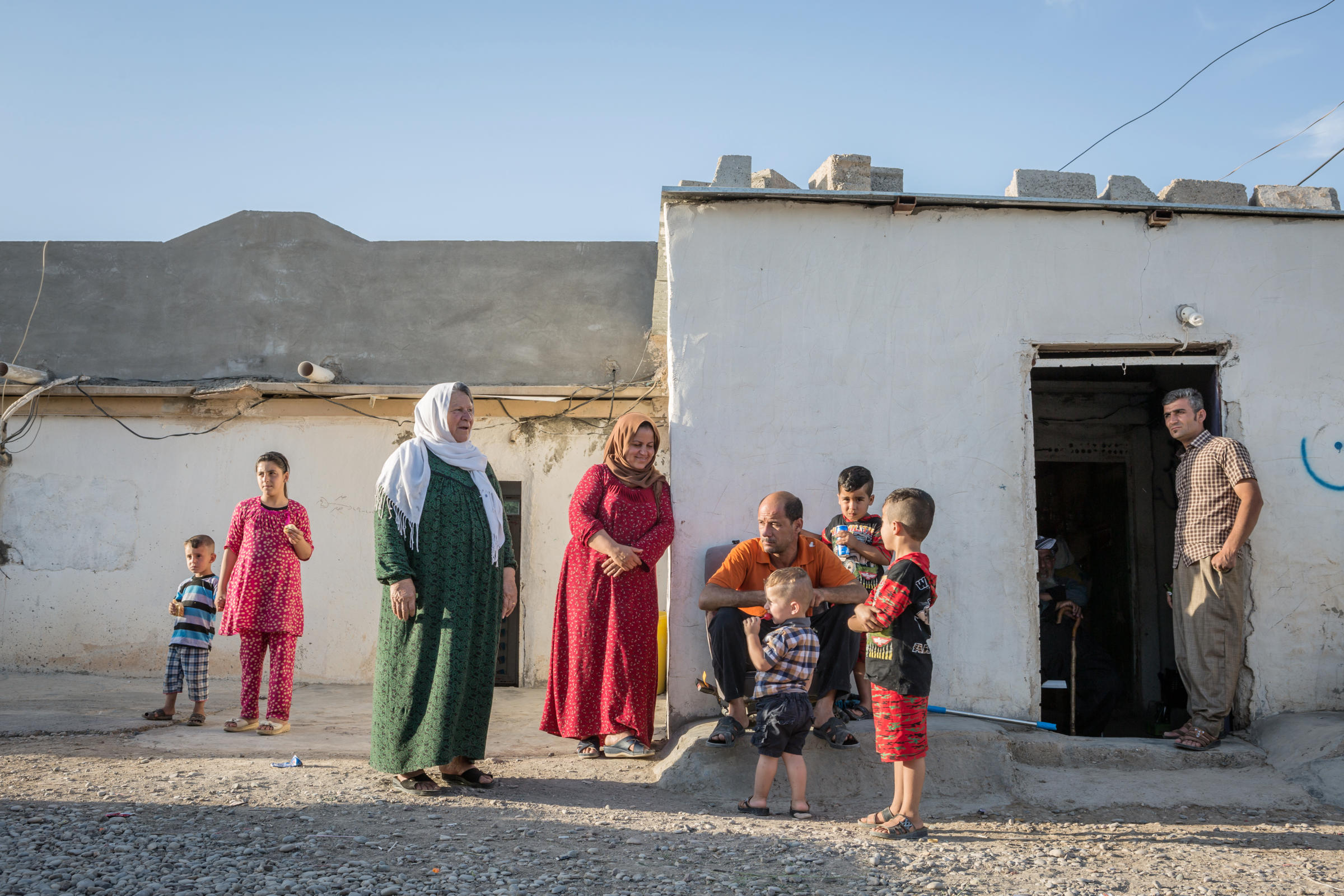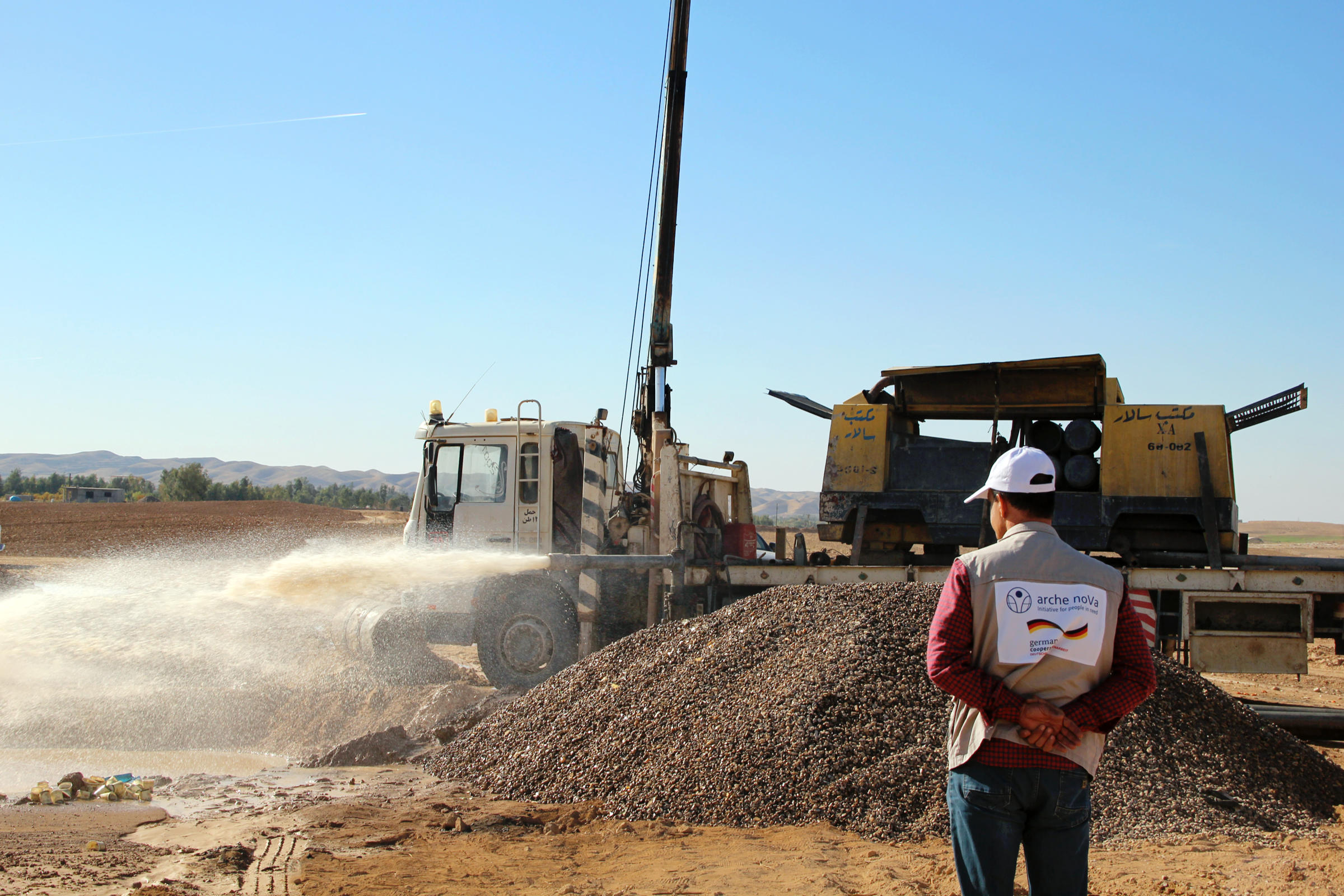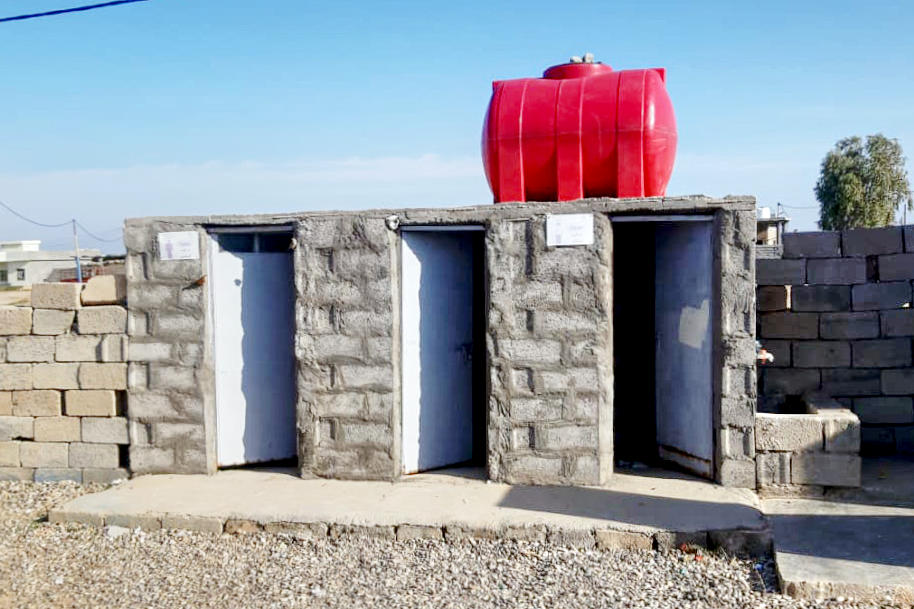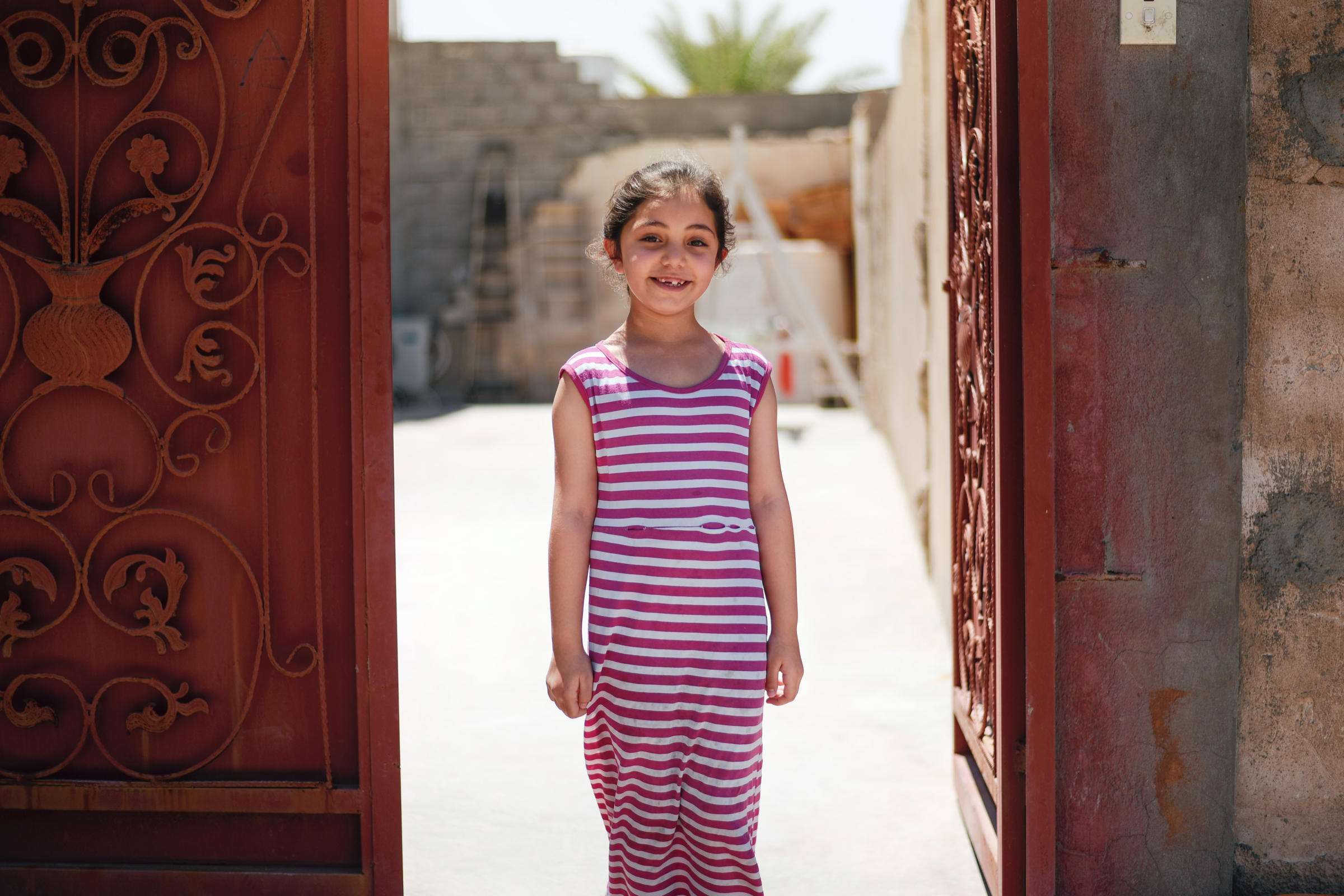"No matter where we are working, our team is eagerly awaited at all project sites," is
how Mohammed Faik, our Kirkuk Area Manager, describes the situation in our project area in northern Iraq. Whether at schools, health posts or in rural communities, the construction and rehabilitation of water and sanitation systems is one of the most important relief activities in a country scarred by violent conflict and chronic deprivation. The current drought makes the commitment to the human right to water even more urgent.
Promotion of agriculture
Water scarcity is also acutely threatening this year's harvests. Our project has already taken up the issue of irrigation. However, the construction work is just starting, so the villages involved will not be able to use it until next season at the earliest. "Our country programme aims to improve the supply situation in a sustainable way. We have long lead times and are glad that the first activities in the field of agriculture are starting now," explains arche noVa Country Director Thomas Weiß. In Abbassi in Kirkuk Governorate, for example, a 30-kilometre section of canal is currently being rehabilitated. The region used to be known for vegetable cultivation, but because of the dilapidated supply lines, hardly any field can be irrigated anymore. Our intervention is intended to change that. About 400 farmers will benefit from this. The potential for profitable sales of tomatoes, cucumbers, cauliflower and other vegetables is great. In addition to irrigation activities, comprehensive training on cultivation methods and the construction of greenhouses will therefore also be part of our programme. They enable water-saving and year-round cultivation. At the household level, arche noVa also promotes the establishment of so-called kitchen gardens for self-sufficiency.
Aid reaches people of a forgotten crisis
The war against the so-called IS in Iraq has ended. However, the people are still far away from normality. Even today, the security situation is precarious and the consequences of the crisis are far from being overcome. arche noVa attaches great importance to reaching all groups of the population in Iraq despite the continuing tensions. No matter which social, ethnic or religious group the people belong to, the yardstick for us is always need. In the communities where we work, local residents and internally displaced people live together. They all suffer from the enormous socio-economic consequences of decades of war in the country. Our activities to improve basic infrastructure benefit all sections of the population and open up the prospect of a normal everyday life after years of crisis. This is especially true for families who fled the armed fighting at the time of the war and those who are still fleeing today due to massive security threats in their own country. Our activities in the host communities explicitly include their needs. In addition, arche noVa has been providing humanitarian aid in the field of water, sanitation and hygiene (WASH) in emergency shelters since 2013. We also support reconstruction in returnee communities that were previously the scene of military conflict with the so-called IS.
















